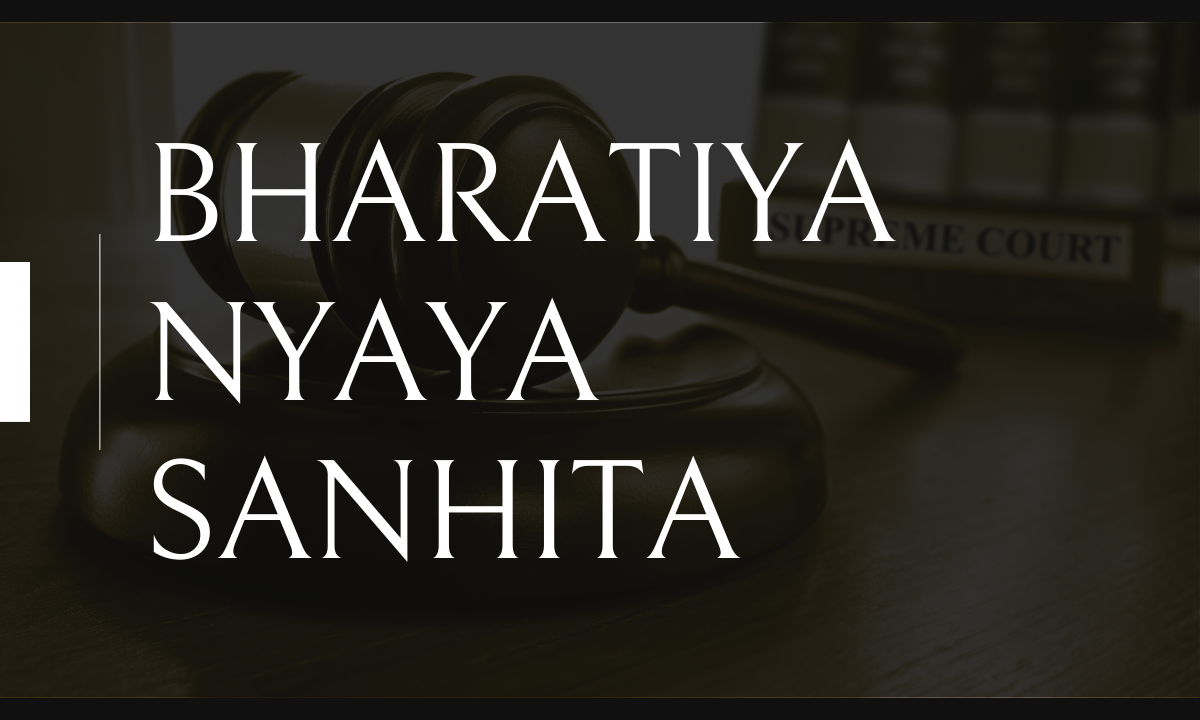+91 9990898327
Office : 632, Dr. Mukherjee Nagar, Delhi 110009
Mon-Sun: 09:00AM - 08:00PM

Bharatiya Nyaya Sanhita (BNS) is a criminal code that has replaced the Indian Penal Code (IPC), which governed the criminal justice system in India for 162 years. BNS, which was drafted by a committee headed by Dr Madhav Godbole and came into effect on July 1, 2024, to reform India's criminal justice system. . The law, which consists of 20 chapters, has streamlined the colonial law by reducing the number of sections from 511 to 358. Besides the consolidation, the law has also increased fines for various offences and has enhanced the terms of imprisonment for 33 offences, such as the trafficking of children.
BNS, which replaced the IPC, was introduced by the Modi government with an aim to render justice to the citizens by overhauling the punishments for various offences and introducing new offences relevant to contemporary society, such as organised crime, terrorism, cybercrime, for addressing the growing complexity of modern crimes. The law has been implemented with the objective of strengthening national security by introducing stricter punishments for activities that threaten India’s stability, such as terrorism and cyber warfare, and promoting a reformative approach through legislative enactments.
The law which has replaced IPC, provides a new definition for various offences and punishment. The law has now expanded the definition of terrorism by including within its ambit the acts that threaten economic security and affect monetary stability. Under the revised version, terrorist acts include within its ambit all the acts that are committed with intent to or that have the likelihood of threatening the country's integrity, sovereignty, security, or economic security or striking terror among the people. To deter such acts, the law punishes a terrorist act resulting in death with death or life imprisonment. In contrast, other terrorist acts are punishable by imprisonment upto five years to life.
The law has also introduced acts of organised crime, mob lynching as a new offence, and counterfeiting currency or coins. The acts of mob lynching, which was earlier not a specific offence, if committed by a group of five or more persons on the grounds of race, caste, community, sex, place of birth, language, personal belief, or other reasons, is punishable with death or life imprisonment.
Additionally, the law also contains a provision to punish men who deceive women into sexual relationships by criminalising sexual intercourse with a false promise of marriage.
Introduction of community service as a punishment: The law has introduced "community service" as a punishment for petty offences for the first time.
The law also criminalises organised crimes, such as kidnapping, extortion, and contract killings, committed by individuals while being a member of a crime syndicate.
IPC, which was conceptualized during the colonial era, acted as a hurdle for the effective dispensation of justice due to various amendments that occurred post-independence. BNS aligns criminal laws with the present social realities to create an efficient and equitable legal system, by including additional offences prevalent in the current era. Some of the differences between BNS and IPC are listed below:
BNS was introduced to cover a wide range of crimes that are prevalent in the current society, such as organised crime, cybercrime, and crimes related to new forms of technology, while IPC only penalised traditional crimes such as murder and assault.
BNS has been implemented to promote restorative justice and reform criminals by focusing on rehabilitation in addition to punishment, while the focus of IPC was on retributive justice.
Before its implementation, the law faced criticism on several fronts. When it was introduced in August 2023, it was referred for review to the Union home ministry’s parliamentary standing committee and was passed in Parliament in December 2023 at a time when 97 opposition members were under suspension in the Lok Sabha in a modified form. Besides the same, the law has introduced several new offences without providing for a proper definition regarding its ingredients.For example- the law does not explicitly define the term community service.
Despite the Supreme Court’s 2022 order of putting the sedition law on hold, the punishment of sedition under BNS has been heightened by increasing the maximum sentence to life imprisonment or up to seven years with a fine, as opposed to the maximum sentence to life imprisonment or up to three years and/or fine. Besides this, the new section has also broadened its definition by including electronic communication and financial means as a way to commit the offence within its purview.
Though BNS, the law has been implemented with the objective of promoting a more gender-neutral approach, its language remains inconsistent with gender specifications since the law only defines women as “victims”, and it fails to include a section on sexual crimes against men and transgender persons. Furthermore, the law does not consist of any provision punishing the offence of 'unnatural sex' and ‘sodomy, thereby posing a threat to the LGBTQ community.
The Role of Bharatiya Nyaya Sanhita in Legal Reforms
The new provisions which have been introduced in the Bharatiya Nyaya Sanhita by replacing the archaic Indian Penal Code would play a major role in revamping the administration of the criminal justice system in India by addressing contemporary societal concerns. Besides promoting an approach that caters to victims, the law also aims to facilitate an efficient legal system by simplifying the laws that govern administration of criminal law.
BNS was introduced by the Modi government in 2023 to replace the outdated IPC, and introduce a modern system for administration of the criminal justice system, by simplifying legal procedures, strengthening accountability and providing an efficient mechanism to deal with crimes.
Critics often argue that the law has the potential to overreach while penalising certain actions, contains ambiguous definitions and provides overarching powers to authorities.
Post a comment